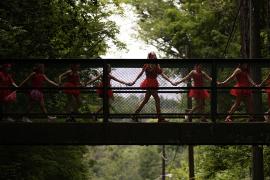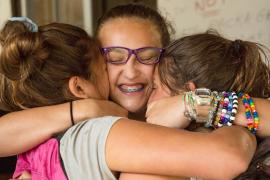Each year, ACA's Eleanor P. Eells Award for Program Excellence recognizes camps that epitomize the award's namesake by developing exemplary programming that effectively and creatively responds to the needs of people and society through the camp experience. We celebrate the 2016 winners. They are all powerful examples of programs actively seeking to unlock the potential of the campers they serve by building the self-esteem, belief in themselves, and skills needed to let their inner lights shine.

Camp Champions — New England
ACA, New England has taken steps to help close the huge gap between available camp financial aid and the considerable need of local families. Following strategy sessions on how to make camp experiences possible for more children in need and how to raise the visibility and profile of ACA, New England and ACA-accredited camps, Camp Champions was born.
Piloted in 2010 and officially launched in 2011, the program is built on the cooperation of all parties involved, including camps, families, donors, dedicated volunteers, and ACA's regional nonprofit organization. Camps apply to ACA, New England for campership funds based on the financial eligibility of the camper.
For five years, key supporters have gathered in the fall at iconic Fenway Park in Boston for a Camp Champions Celebration to honor the true spirit of summer camp, to raise campership funds, and to pay tribute to the exemplary work of a "Camp Champion." Camp Champions honored thus far have included public figures, politicians, actors, business people, and musicians.
In addition to the annual Camp Champions Celebration, other fundraising campaigns for the program include swim-a-thons, which have proven to be very popular because experienced campers who want other kids to experience the joys of camp participate by gathering pledges and swimming laps to raise money. Local businesses also find creative ways to raise money for Camp Champions by offering special products and donating a portion of their sales to camperships.
Camp Champions serves children in need in all six New England states — Connecticut, Maine, Massachusetts, New Hampshire, Rhode Island, and Vermont — by providing them with camperships at ACA, New England day and overnight camps.
"We believe there is a camp for everyone and that the match between a child's needs and interests and the camp's programs and culture is key to a successful experience. This is why camps apply for funding on behalf of campers who have already identified a camp that is the right fit," said Lucy Jackson Norvell, director of development and communications for ACA, New England.
"It's inspirational to know that the collective efforts of campers, counselors, camp professionals and staff, business and camp sponsors, donors, allied professionals, and members of the community at large can make such a huge difference for more than 200 children a summer, and that the boost in visibility that comes from honoring Camp Champions actually honors the profession in a wonderful way in the media and on social media," she said.
"Our hope for the fundraising is that it grows quickly so we can fund all requests for campership assistance. At the present time, there are approximately double the requests than can be funded," said Norvell. "And our goal for visibility is to create steady growth in the buzz about Camp Champions and in the formal coverage of our field and this heartwarming program."
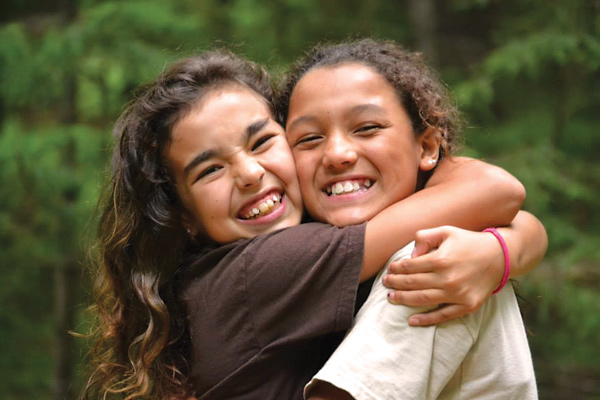
Camp Susan Curtis — New England
The Susan L. Curtis Charitable Foundation and Camp Susan Curtis are on a mission to ensure that economically disadvantaged Maine youth develop the character, self-confidence, and skills vital to becoming independent, contributing citizens. The foundation began in 1971 and Camp Susan Curtis celebrated its first summer in 1974.
Each summer, 500 campers are given a tuition-free, unique camp experience guided by compassionate role models who create an inclusive, positive camp culture and immerse program participants in experiential learning through an intentional, inquiry-based curriculum. Campers are referred through a network of more than 200 partners, including educators, school counselors, and social workers. Eligibility is based on the federal USDA free/reduced school lunch program guidelines.
Campers experience the "carefree moments of summer while building their self-confidence through curriculum that cleverly disguises learning through experiential activities that promote recreation, socialization, and healthy lifestyles," said Terri Mulks, director at Camp Susan Curtis.
Campers, whose potential is too often limited by lack of resources, become better prepared to achieve at home, at school, within their broader communities, as well as in the workplace. Collaboration, communication, resilience, and motivation to achieve are emphasized along with other crucial 21st-century skills. Campers are encouraged to set achievable goals and learn to recover and draw wisdom from mistakes.
The cabin family is central to learning at Camp Susan Curtis. Same-grade campers live together and participate in character development, healthy lifestyles, literacy, and financial responsibility. Beyond enjoying all-camp activities such as campfires, a carnival, and theme day, campers additionally fall into one of three camper activity groups:
- Traditional campers (third grade – seventh grade) choose activities within five program areas: 1) creative arts, 2) environmental adventures, 3) sports and games, 4) Ropes and Outdoor Chal lenges for Kids (ROCK), and 5) waterfront.
- Bridge campers (eighth and ninth grade) have a choice of programs in an area of interest, including art; wilderness expeditions; science, technology, engineering, and mathematics (STEM); and sports leadership.
- Leadership development campers (ninth – 11th grade) transition from camper to staff in a three-pronged program. College planning and career exploration are interwoven with program activities and the setting of personal goals.
"Our goal is to see all of our campers graduate from high school and then define their own success in life using the skills and habits they developed while at camp," Mulks said.
The impact Camp Susan Curtis is having on its campers is readily apparent in improved outcomes: 98.8 percent of long-term participants graduate from high school compared to 78 percent of like-resourced Maine students, and 78.4 percent go on to some form of higher education compared to 48 percent of like-resourced Maine students.
While continuing to serve campers for two weeks every summer through Camp Susan Curtis, the foundation has the additional goal of extending its reach into the academic year, including Camp to Campus and Career Trips and Workshops programs for high school students and a mentoring program for middle school students.
"The legacy that Susan left to economically disadvantaged campers remains strong and true after 40-plus years," said Mulks, "Campers develop the habits and skills for lifelong achievement in a culture of joy and acceptance."
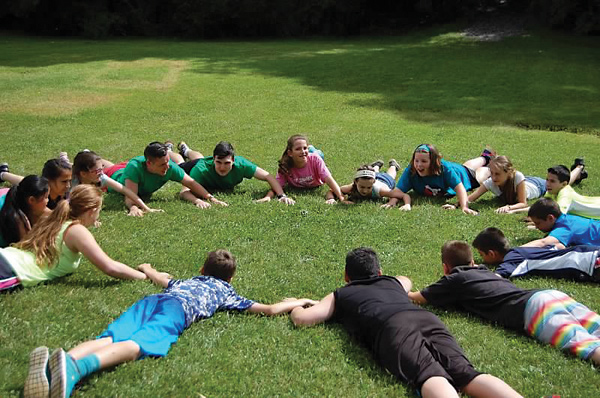
Green Chimneys Summer Camps — New York/New Jersey
Green Chimneys is a multifaceted, nonprofit education and service organization that helps young people reach their full potential by providing residential, educational, clinical, and recreational services in a safe and supportive environment that nurtures connections with family, communities, animals, and nature.
For more than 40 years, Green Chimneys Summer Camps' two day camp locations in Putnam County, New York, have blended great camp traditions with dynamic outdoor experiences to create exciting and educational summers full of experiential learning.
"From the start, Green Chimneys' philosophy has been based on the belief that if children are given a chance to explore and discover their inherent strengths in a safe and structured, nature-based environment, their self-esteem, compassion, and coping and social skills will improve," said Camp Director Heather Boylston.
Green Chimneys day campers learn and grow through participation in a wide variety of activities such as watersports, creative arts, and traditional sports, as well as environmental, adventure-based, and farm activities.
Green Chimneys Summer Camps also provide the unique opportunity to integrate camp programming into the summer session of Green Chimneys' special education school, which shares the campus at each site. The fully accredited therapeutic program incorporates academic, behavioral, and emotional support in a comprehensive learning environment to help children achieve new skills to best set them up for success in their home school districts.
"We have a chance to integrate children from all backgrounds, including special needs and cultural exchanges, to help foster acceptance of each other's difference," said Boylston. "We hire staff who are mature and often going to school to become a teacher or social worker," she said, and a number of those staff members are from other countries and cultures.
"We have had staff representing 14 different countries in one summer. Green Chimneys offers children a chance to learn about the world around them by hiring international staff from around the world.
"And while we love our camp traditions," Boylston added, "we pride ourselves in bringing in unique programs each summer to continue our Green Chimneys camp spirit."
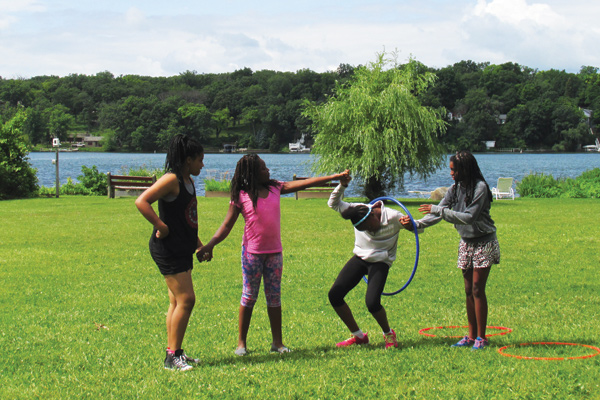
House in the Wood — Illinois
Founded in 1910 and now serving about 400 campers from the Chicago area each summer, House in the Wood exists to foster growth in its campers so they can return to their communities as leaders. As a program of Northwestern Settlement, whose focus is on nurturing, educating, and inspiring Chicago's children and families in need through education, social services, and the arts, House in the Wood offers for many of its campers an escape from an unstable, underprivileged lifestyle in often unsafe, potential-stifling urban neighborhoods.
"Campers are able and encouraged to play and act like children — not watching their backs or worrying about their next meal," said Valerie Wright, executive director of House in the Wood. "They are introduced to ideas, activities, and skills unavailable to them elsewhere, which inspire them and open their lives to new possibilities. In all of our programming we emphasize the values of responsibility, respect, cooperation, stewardship of nature, and service of community."
Located in Delavan, Wisconsin, House in the Wood is a co-ed residential summer camp nestled on the shores of a quiet lake. It provides a fully supervised program of fun and activities for children ages seven to 15 and designed to provide positive alternatives to the challenges of inner-city life. For example, cabin activities are designed to help campers learn to live together, communicate more effectively, and resolve conflicts peacefully. The lake is used for swimming and boating, and the camp's woods, marshes, and state-of-theart nature center are used for nature and environmental studies.
Programming also includes arts and crafts, theater, sports, and an outdoor adventure that involves cooking over a fire and tent camping.
"House in the Wood is always seeking the perspectives and ideas of individuals and organizations who can add to our already rich program offerings," Wright said. "Our program staff come from around the country and around the world, all with their own passions, interests, hobbies, and talents, which they are encouraged to develop into programs and activities for our campers. Volunteers from our local communities are encouraged to do the same. This creates an ever growing and changing variety of programs, each of which has the potential to spark a life-changing passion in a camper."
At a foundational level, House in the Wood makes the traditional camp environment and activities relevant to a modern world. During their time at camp, kids develop their social and communication skills, practice cooperation, and take responsibility for their share of duties within the camp community. "In other words, they are exercising some of the most vital qualities needed in the 21st-century workplace," said Wright.
Among its future goals, House in the Wood hopes to further develop its Leaders in Training program for teens by adding new experiences to the summer program, as well as creating volunteer and mentorship opportunities throughout the year.
"In some of the bleakest conditions in some of the harshest neighborhoods in Chicago, there are wonderful, talented children brimming with potential. House in the Wood is a place where they can discover their stars and develop the tools to reach for them," said Wright.
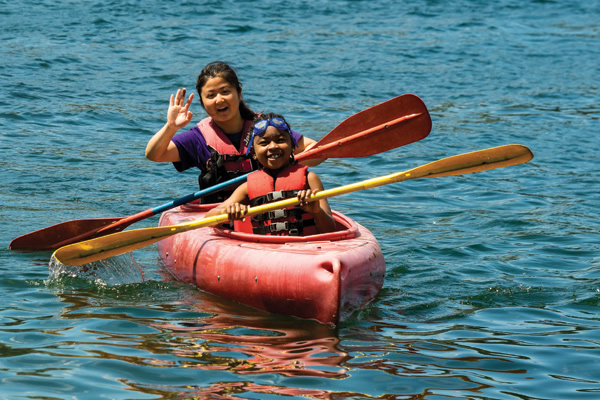
Real Options for City Kids (ROCK) — Northern California
In 1994, a Mountain Camp staff member started an after-school sports program for underserved, at-risk children living in San Francisco. She called it Real Options for City Kids (ROCK). That same year, Mountain Camp partnered with ROCK and began bringing ROCK participants to the camp on the shore of Ice House Lake in California's Eldorado National Forest to experience a traditional summer camp. More than two decades later, the program has grown to provide more than 65 children the opportunity to attend Mountain Camp each summer, the cost for which is entirely funded through the Mountain Camp Scholarship Fund.
ROCK's mission is to nurture the healthy development of children by listening attentively to their needs and providing opportunities to those who might not otherwise have access.
For many of the ROCK campers, attending Mountain Camp is their first time away from the city. They will climb on the ropes courses, mountain bike, kayak and sail on the lake, sing songs around the campfire, and experience the magic of being out in the wilderness, all while developing a sense of community, learning personal responsibility, and being challenged to do more than they imagined possible.
The camp program focuses on creating a fun and safe environment that encourages independence while nurturing lasting friendships. At a time when children are increasingly surrounded by computers, televisions, and video games, one big goal is to get campers outside, actively creating, playing, and learning lifelong outdoor skills.
Thinking outside the box, Mountain Camp has made its ROCK program an integral part of its pre-camp staff training week. "It has provided an incredible win-win for both the camp and the kids," said Don Whipple, camp director. "Our counselors get the opportunity to run a small camp program for an incredible and deserving group of kids as part of their staff training, and the kids get a great camp experience. Our more experienced returning staff take the lead with our new staff assisting and gaining valuable experience."
Whipple hopes other camps will follow in the innovative footsteps of Mountain Camp's ROCK program. "I would love to see more camps take our model of bringing underserved and at-risk kids to camp as part of their pre-camp training. The kids and staff both have an incredible experience while making lifelong memories."
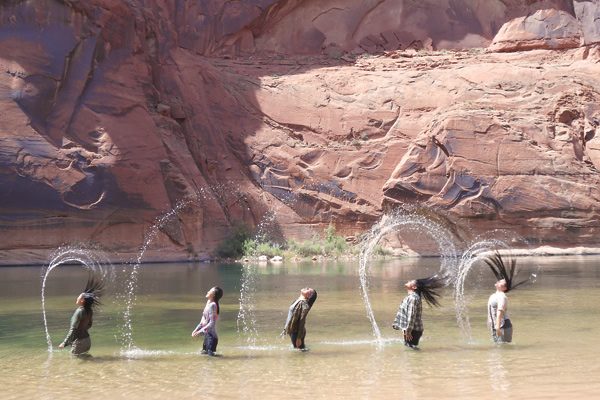
Summer Search — Northern California (Headquarters)
Summer Search is a national youth development and college success organization with a mission to help low-income students develop the skills and character traits needed to become college-educated leaders who give back to their families and communities. The organization was founded in 1990 in San Francisco and, in 2015, served over 3,300 high school and college students from the Bay Area, Boston, New York, Philadelphia, and Seattle. Of those students, 95 percent qualified for free or reduced lunch and 92 percent were first-generation college bound. The median household income for a Summer Search family of four is roughly $23,000 per year.
Summer Search partners with high schools in its focus cities to identify students short on opportunity and long on resilience, altruism, and determination — character traits that hold the seeds for success in school and in life. The program makes a long-term investment in these students and is committed to offering them the same experiential learning, college access, and in-college support that their higher-income peers typically receive.
"Summer Search helps students become college graduates by providing a unique, comprehensive service model that integrates year-round professional mentorship, summer experiential learning opportunities, individualized college and financial aid counseling, and a consistent network of support through their high school and post-secondary years," said Alison Cunningham, Summer Search foundation and corporate relations officer.
Three elements of the program set Summer Search apart and set up its participants for success:
- The long-term investment in students from their sophomore year of high school through college graduation.
- The holistic nature of the mentoring relationship developed between the paid, professional staff mentors and the program's students.
- The focus on helping students develop noncognitive skills that are necessary to manage the environmental challenges they will face in college and in life.
Each year, 98 percent of Summer Search students graduate from high school, and 71 percent of the program's recent high school grads have earned a bachelor's degree or remain on track to do so — this in sharp contrast to the fewer than one in ten of their peers.
"Summer Search's vision for the future is to continue expanding our reach by serving many more deserving students year after year," said Cunningham.
"Summer Search alumni are beacons of change who give back to their families and communities."
Research in Practice
We also celebrate the 2016 winner of the Eleanor Eells Award for Excellence in Research in Practice, which focuses on programs that generate or apply innovative, quality research or evaluation, use the findings to improve program practice, and share those findings with others.
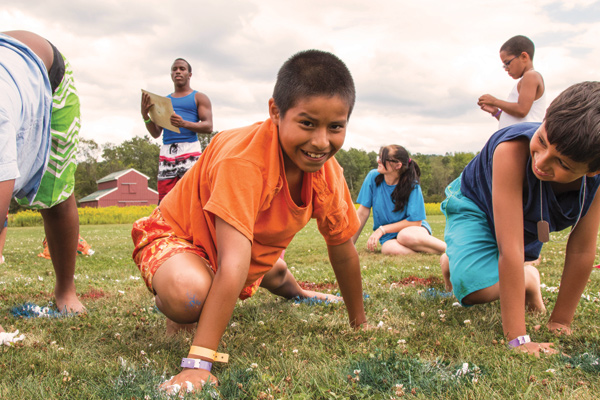
The Fiver Children's Foundation — New York/New Jersey
Founded in 1998, the Fiver Children's Foundation is a comprehensive youth development organization that makes a ten-year commitment to children from underserved communities throughout the New York area. Through a character-building summer camp and year-round out-of-school time programs, the foundation aims to empower children to make ethical and healthy decisions, to become engaged citizens, and to succeed in school, careers, and life.
Program participants, known as "Fivers," progress through ten years of developmentally appropriate program stages that are experiential, inquiry-based, and free of charge. Referred to the program at age eight, Fivers remain involved until they graduate from high school. In addition, the foundation takes a holistic approach to youth development by serving all of the children within a family and providing educational programs for parents.
"Since our first summer in operation, Fiver has believed in basing programs on measurable outcomes, not simply on good intentions," said Christie Ko, executive director of Fiver Children's Foundation.
The foundation has conducted several internal and external evaluation and research projects that have led to improved camp practices. In 2012, they developed a "Theory of Change" to better articulate the connections between their program activities and their targeted youth outcomes. This theory helped clarify Fiver's three long-term program goals, to ensure Fivers:
- Have market-driven, 21st-century skills to succeed in school and careers
- Make healthy life choices
- Demonstrate leadership skills and a commitment to service
"We are dedicated to continuing to improve our evaluation methods as well as our program practices as a result of the data gathered," Ko said. Staff members build relationships with children during a two-week stay at Camp Fiver, a residential summer camp nestled in the peaceful hamlet of Poolville. The intensive camp experience provides a fast track to bonding with staff members who become long-term mentors. Camp is followed with intentional out-of-school time programs including one-on-one mentoring meetings, character-cultivating programs, educational workshops, and career readiness training.
The foundation's long-term commitment to children in the program ensures ample time to focus on character, as Ko points out that "educators, neuroscientists, and even economists have published evidence supporting two important principles. First, that character is critical to success in life, and second, that character can be taught."
Teaching 21st-century skills that business leaders have identified as major skills gaps in recent college grads is another important focus. For example, ninth-grade Fivers take part in an Ethical Decision-Making class in which they learn to identify a moral issue, weigh their options, consider the stakeholders, and reflect on the decision. High school students also take a Public Speaking class across four summers that includes instruction on tone, articulation, body language, handshakes, mock interviews, and a culminating graduation speech in front of 150-plus peers and guests.
Through its Theory of Change and core survey tools, Fiver Children's Foundation measures character, skill, and knowledge gains over time. Since its inception, 96 percent of program graduates have completed high school, and of those, 90 percent have enrolled in college and are committed to spreading Fiver positivity.
Future goals for Fiver Children's Foundation include expanding the year-round program team to provide more intensive direct services to children and establishing an alumni program and network for program graduates to support them in graduating from college and finding success in careers. "We want for the Fiver kids what all parents want for their children: to grow up to be happy, fulfilled adults who achieve their full potential in life," said Ko.
"We want them to have the courage to strive for their dreams, and if they come up short, the resilience to try again. Then, we want them to take what they have learned at Fiver and share it with the world."
Marcia Ellett is a professional writer and editor. She is currently the assistant editor of ACA's Camping Magazine.


